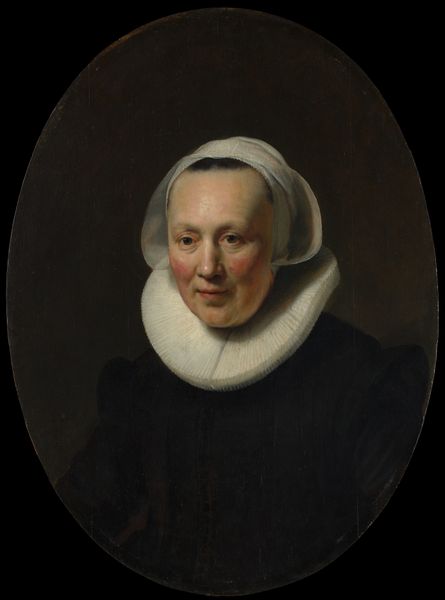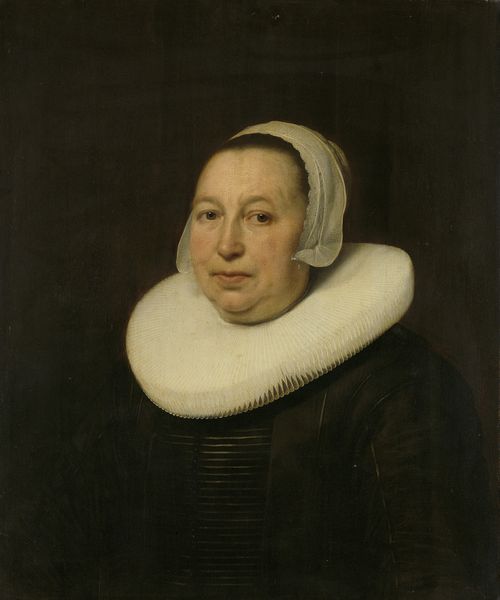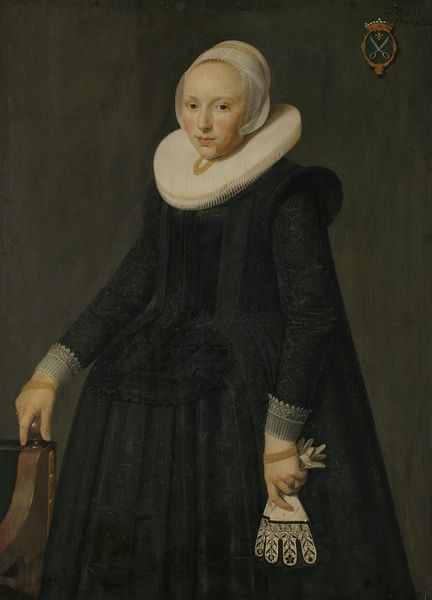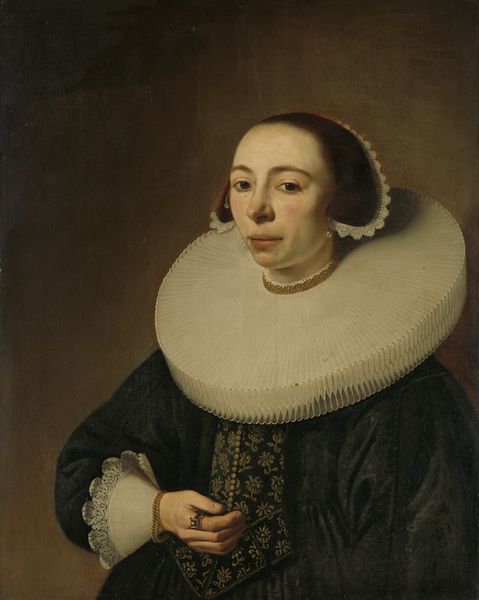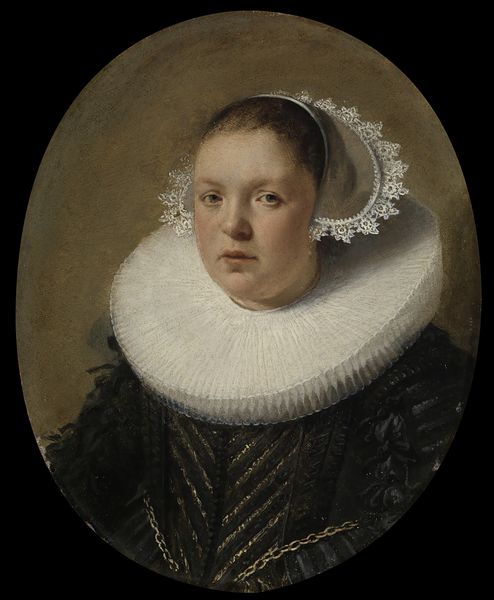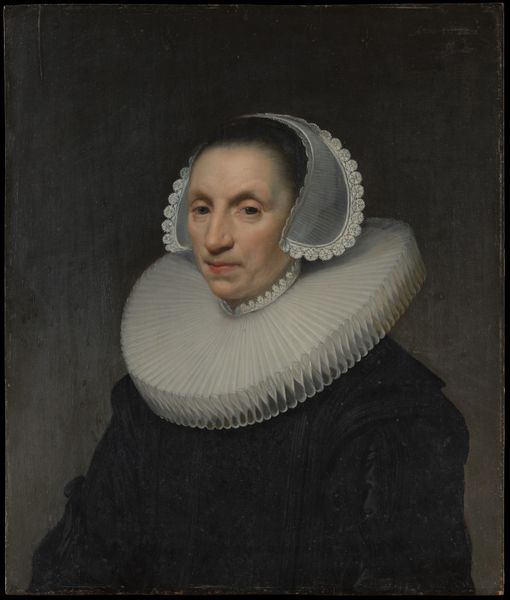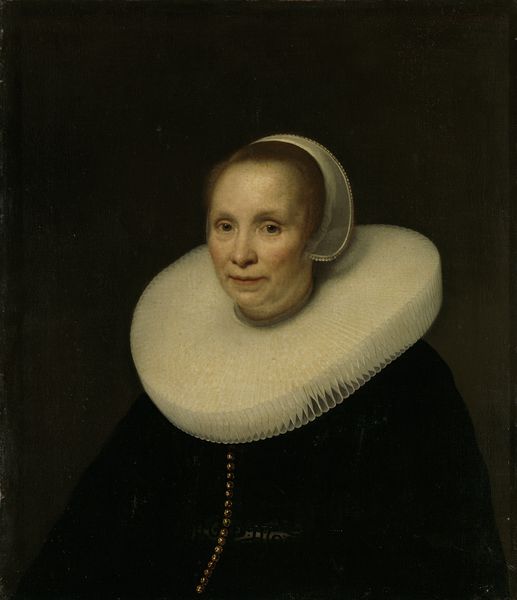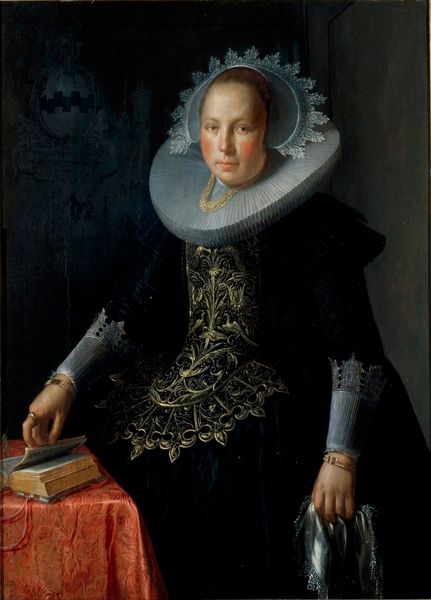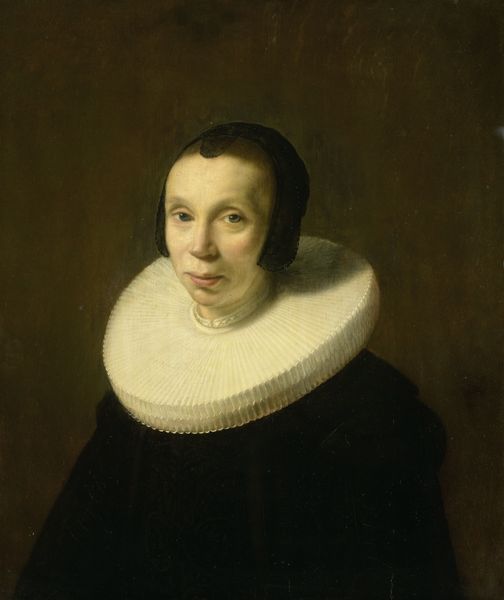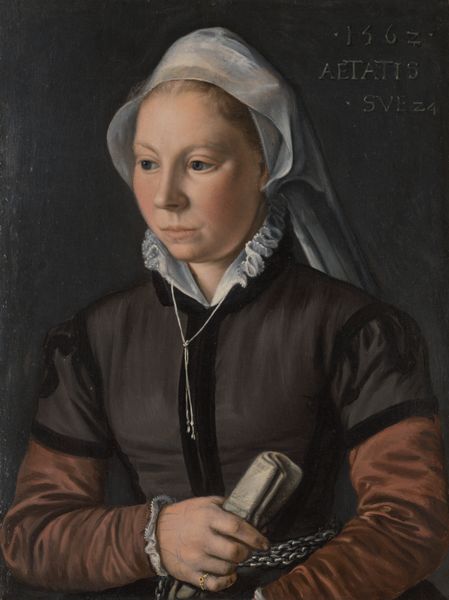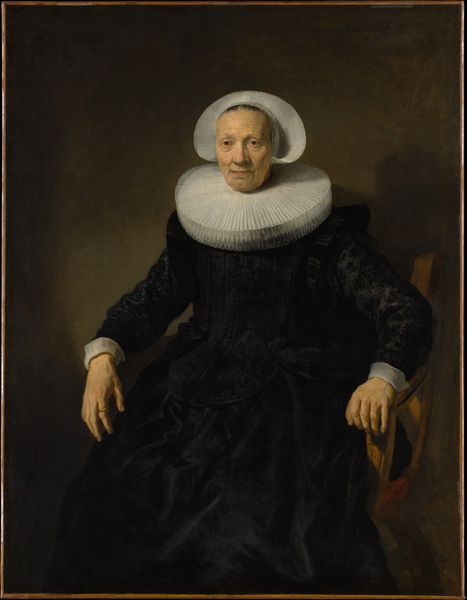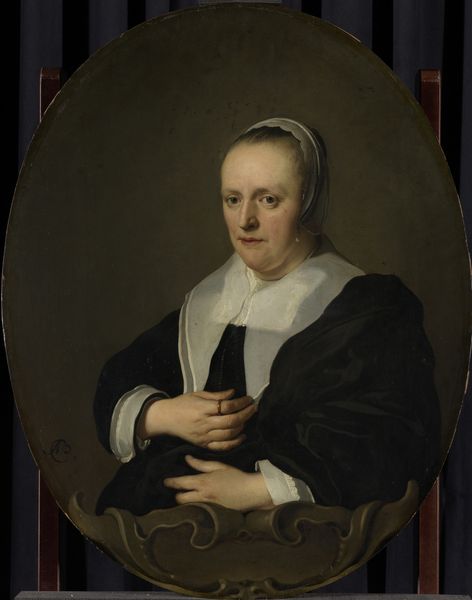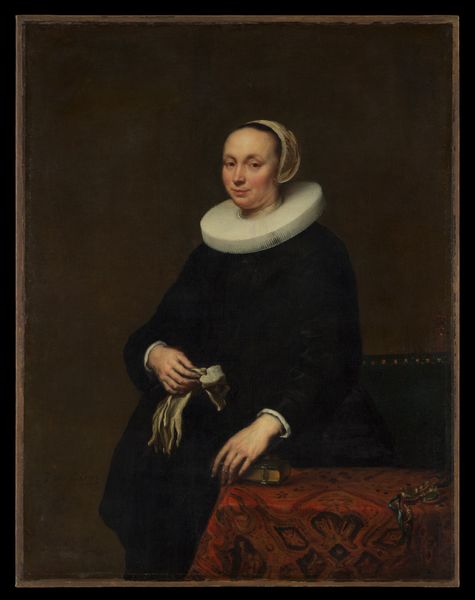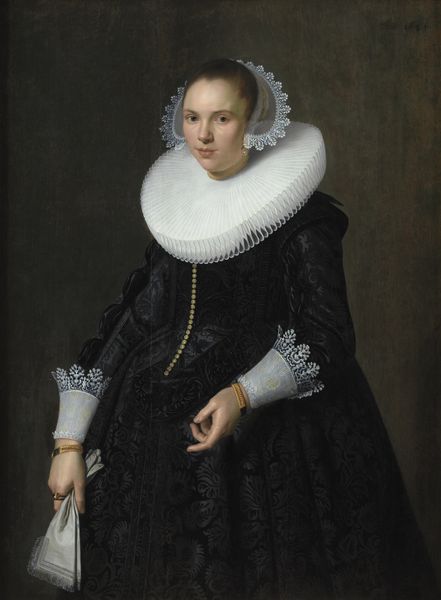
painting
#
portrait
#
baroque
#
low key portrait
#
portrait image
#
dutch-golden-age
#
portrait
#
painting
#
portrait subject
#
portrait reference
#
portrait head and shoulder
#
men
#
history-painting
#
facial portrait
#
portrait character photography
#
fine art portrait
#
realism
#
celebrity portrait
Dimensions: 9 1/8 x 6 7/8 in. (23.2 x 17.5 cm)
Copyright: Public Domain
Editor: Here we have Thomas de Keyser's "Portrait of a Woman with a Balance," painted around 1625 or 1626 and currently housed in the Metropolitan Museum of Art. The subdued palette creates a really contemplative mood for me, especially with her holding those scales. What do you see in this piece, particularly in how it's put together visually? Curator: The power here lies in the interplay of forms. Note how the circular ruff frames her face, directing our gaze. Consider how that geometric shape then contrasts with the subtle texture of her skin and the almost severe planes of her dark dress. The painting functions through carefully orchestrated contrasts: light versus dark, smooth versus textured. What does the balance introduce into the arrangement? Editor: I guess it breaks the symmetry. She isn’t posed dead center, and the balance pulls your eye toward the lower left, away from her face. Is that asymmetry intentional to disrupt a more formal portrait style? Curator: Precisely. De Keyser masterfully destabilizes the expected rigidity of portraiture. By positioning the balance off-center, he creates a visual tension, a dynamic asymmetry that prevents the portrait from becoming static or merely decorative. Observe also how the light catches the metallic surface, offering a focal counterpoint to her face. How does this tension resonate for you? Editor: It's making me reconsider how even seemingly straightforward portraits can have such subtle but impactful visual strategies at play. The asymmetry really changes how you read the entire composition. Curator: Indeed. It encourages a deeper engagement with the artistic choices and their impact on the viewer's experience. Editor: Thanks; I hadn't thought about how those choices are affecting the overall impression.
Comments
No comments
Be the first to comment and join the conversation on the ultimate creative platform.
